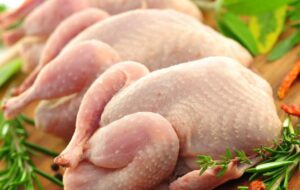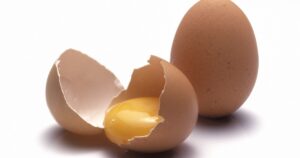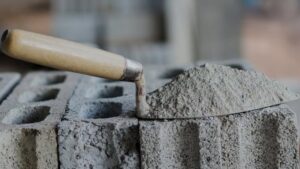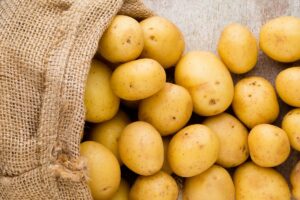
MHP Food and Agricultural Holding, Ukraine’s largest chicken producer, reduced meat exports from Ukraine by 12% to 87,799 thousand tons in April-June 2024.
According to the holding’s report on the London Stock Exchange on Friday, MHP increased poultry production in the European operating segment (PP) to 35.46 thousand tons, up 6.5% year-on-year.
The agricultural holding noted that the volume of meat production in Ukraine remained stable in the period under review at 187.414 thousand tons against 181.69 thousand tons in the same period last year.
At the same time, the average price of poultry meat in Ukraine remained stable and was in line with last year’s figure at $1.97 per kg (excluding VAT). The average price for poultry produced in the European segment also remained virtually unchanged at EUR3.54 per kg compared to EUR3.64 per kg in the same period last year.
MHP reduced poultry exports from Ukraine in the second quarter of 2024 by 12% to 87,799 thousand tons compared to the same period last year.
In January-June of this year, the agricultural holding practically did not change the volume of poultry production in Ukraine – 365.901 thousand tons against 359.332 thousand tons in the same period of 2023. The volume of poultry production in the European segment of MHP increased by 7% to 69,418 thsd tonnes. A year earlier in the same period, this figure was 65,087 thousand tons.
The average price of MHP poultry in Ukraine remained almost unchanged at $1.98 per kg excluding VAT, compared to $1.92 a year earlier. The average price for poultry meat produced in the European segment also remained virtually unchanged at EUR3.49 per kg in the first six months of 2024 (EUR3.58 per kg in the first six months of 2023).
In the first half of 2024, MHP reduced poultry exports from Ukraine by 12% to 185.854 thousand tons. A year earlier, this figure was 212.106 tons for the same period.
The total volume of poultry sales to third parties in January-June 2024 decreased by 8% year-on-year to 327.215 thousand tons, mainly due to a significant decrease in export sales, the agricultural holding explained.
At the same time, the total sales of processed poultry meat in the first half of this year increased by 19% to 20.386 thousand tons due to production growth and further transformation into a culinary company. The average price of value-added products increased by 4% to $2.90 per kg as a result of changes in the product mix.
MHP is the largest chicken producer in Ukraine. The company produces cereals, sunflower oil, and processed meat products.
As reported, the company received $142 million in net profit in 2023 compared to $231 million in net loss a year earlier. The group’s revenue increased by 14% to $3.021 billion last year.
In the second quarter of 2024, MHP earned $29 million in net profit, up 71% compared to the second quarter of 2023. Its EBITDA increased by 40% to $153 million, while revenue decreased by 5% to $770 million. The agroholding attributed the increase in profitability to improved performance in the crop sector.
Overall, net profit decreased by 33% to $45 million for the half-year, due to foreign exchange losses of $81 million against $5 million in the first half of 2023.
EBITDA in crop production increased by 20% to $280 million, while revenue decreased by 4% to $1.489 billion.

Ovostar Union, one of the leading producers of eggs and egg products in Ukraine, posted a net profit of $13.3 million in the first half of 2024, down 35.4% year-on-year, due to higher feed costs and falling prices for finished products.
According to the group’s report on the Warsaw Stock Exchange, its revenue for the first six months of this year fell by 26% year-on-year to $64.2 million, due to a 30% drop in the cost of eggs (year-on-year), dry and liquid egg products by 8% and 25%, respectively.
In particular, revenues from eggs fell to $39.86 million from $62.11 million, and pre-tax profit in this segment fell to $4.39 million from $8.66 million, while revenues from egg products decreased slightly to $24.35 million from $26.58 million, although the decline in pre-tax profit was greater – to $9.08 million from $12.22 million.
Also, sales in Ukraine decreased to $31.18 million from $40.76 million, and exports to $33.03 million from $47.93 million.
In January-June this year, Ovostar’s gross profit decreased by 29.3% to $19.1 million, operating profit by 43.8% to $11.3 million, and EBITDA by 41.0% to $12.8 million.
The weakening of the hryvnia also led to the fact that in the first half of this year, Ovostar’s total profit amounted to $6.46 million against $20.59 million in the same period last year.
It is noted that during the year, the total number of livestock increased from 7.3 million to 7.6 million, although the number of laying hens decreased from 6.5 million to 6.2 million, resulting in a 4% decrease in egg production to 706 million.
Against the backdrop of Russia’s full-scale military invasion of Ukraine and the overall unfavorable situation in the country’s economy, the management decided to suspend the investment program, but the company’s investments increased to $6.8 million in the reporting period from $5.2 million in the first half of last year.
“In the first half of 2024, the group started construction of two poultry houses for young poultry with a total budget of about $3.8 million, of which $1.8 million has already been spent as of the reporting date. The planned completion date is April 2025,” the report said.
The group also reported that its net debt jumped from $47.9 million to $72.4 million, but free cash flow increased by about the same amount – from $50.3 million to $74.4 million. In particular, over 12 months in Ukraine, they decreased to $22.7 million from $24.7 million, including the equivalent of $0.4 million in hryvnia from $7.6 million, in Latvia – to $10 million from $21.2 million, while in the UK, an increase to $40.31 million from $0.12 million was recorded.
As reported, Ovostar Union’s net profit for the first quarter of 2024 fell by 22.4% to $6.97 million, while revenue decreased by 24.6% to $35.67 million.
In mid-June 2011, the group’s holding company, Ovostar Union N.V., held an IPO of 25% of its shares on the WSE and raised $33.2 million. However, this year, the majority owners of the agricultural holding, CEO Boris Belikov and member of the Board of Directors Vitaliy Veresenko, together with Fairfax Financial Holding, accumulated 95.45% of the shares and bought out the remaining 4.55%, or 277,066 thousand shares, in a squeeze-out at a price of PLN70 per share (about $17.3 at the then exchange rate).

The Swedish government has approved an additional SEK 500 million ($49 million) to support heating and electricity in Ukraine.
According to the Swedish government’s website, the new support is aimed at covering the needs of the most vulnerable people in the country. This new support will be provided in parallel with the extensive Swedish support already provided to Ukraine’s energy sector.
“Today, the government is allocating an additional SEK 500 million to support heating and electricity in Ukraine. Russia is increasingly targeting critical energy infrastructure. This new support will go to generate electricity for about 185,000 people and help support Ukrainian society, economy and business,” said Minister for International Cooperation and Foreign Trade Johan Forssell.
He emphasized that this is crucial for Ukraine’s resilience.
Minister of Energy, Business and Industry Ebba Busch noted that Sweden will continue to support Ukraine “as long as it takes”. “This SEK 500 million will be one of Sweden’s largest contributions to Ukraine’s energy supply and will help generate electricity for hospitals and thousands of Ukrainian homes,” she said.
The initiative includes two gas turbines for initial power generation. The production facility will be protected in a way that minimizes the devastating effects of Russian attacks.
The Swedish International Development Cooperation Agency will be primarily responsible for Sweden’s contribution. The project is a joint investment with the Ukrainian state energy company and other international financial institutions. The goal is for this production facility to start operating in 2025.

On the eighth competition day of the 2024 Paralympic Games in Paris, the Ukrainian national team won 9 medals, including 2 gold, 2 silver and 5 bronze, the Ministry of Youth and Sports reports.
Thus, Ukrainian judoka Natalia Nikolaychyk won gold (weight category up to 48 kg, class J1).
Ukrainian shot putter Maria Pomazan also won gold (class F35).
The men’s goalball team, including Vasyl Oliynyk, Anton Strelchuk, Fedir Sydorenko, Yevhen Tsyganenko, Rodion Zhygalin and Oleksandr Toporkov, won two silver medals.
Ukrainian track and field athlete Oksana Boturchuk also won silver in the 100-meter dash, class T12.
Pavlo Bal won a bronze medal in the 56.8 km road race (H5 class) in the general class.
Ukrainian judokas Anzhela Havrysiuk (weight category up to 57 kg, class J1) and David Khorava (weight category up to 60 kg, class J2) won two more bronze medals.
Swimmers Danylo Chufarov (100 meters breaststroke, SB11 class) and Yaroslav Semenenko, Anna Gontar, Oleksandr Komarov and Iryna Poyda (4×50 meters medley relay) also won two bronze medals.
Currently, the Ukrainian national team ranks 7th in the medal standings with 61 medals. In particular, the team has 15 gold, 20 silver and 26 bronze medals.

The Antimonopoly Committee of Ukraine (AMCU) has authorized CRH Ukraine B. V. (Rotterdam, the Netherlands) to acquire shares of PrJSC “Dickergoff Cement Ukraine”, which will provide it with more than 50% of the votes in the supreme management body of the acquired asset, according to the AMCU website. The AMCU also authorized the implementation of measures that impede competition provided for in the sale and purchase agreement (subparagraph 16.1 of paragraph 16 of the share purchase agreement concluded between Dyckerhoff GMBH, CRH Ukraine B. V. and CRH Nederland B. V.”), which must be made within 24 months after the transaction is completed.
As reported, in July 2024, the AMCU announced the terms of the possible acquisition of Dyckerhoff Cement Ukraine assets by CRH Group, namely the transfer of 25-28% of the shares of the PrJSC to an independent investor with a veto right.
It is expected that this investor will be the European Bank for Reconstruction and Development (EBRD), as in December 2023 CRH signed a mandate letter with it on the joint acquisition of the assets of the Italian company Buzzi in Ukraine.
CRH Ukraine B.V. has announced its intention to acquire a 99.9775% stake in the authorized capital of PrJSC Dickergoff Cement Ukraine, which owns two cement plants in Rivne and Mykolaiv regions. The company posted the relevant notice in the information disclosure system of the National Securities and Stock Market Commission (NSSMC) on August 12, 2024.
In June 2023, Italian cement producer Buzzi, listed by the National Agency for the Prevention of Corruption as an international war sponsor, reached an agreement through its subsidiary Dyckerhoff GmbH to sell part of its Eastern European business to the Irish CRH group, including its Ukrainian assets in the form of two cement plants: “Volyn-Cement (Zdolbuniv, Rivne region) and Pivden-Cement (Olshanske, Mykolaiv region). As of the summer of 2023, the purchase price was estimated at EUR 100 million.
The AMCU has been considering CRH’s application for concentration since September 2023.
CRH has been operating in Ukraine since 1999. Since November 2021, its cement enterprises in Ukraine have been operating under the Cemark brand: Podilskyi Cement JSC (Khmelnytskyi region), Cement LLC (Odesa) and Mykolaivcement PrJSC (Lviv region).
CRH is the world’s leading manufacturer of building materials. The company employs about 71 thousand people at its 3,200 facilities in 28 countries. It is the largest manufacturer of building materials in North America and Europe. The company is also represented in Asia. CRH American depositary shares are listed on the New York Stock Exchange.

Demand for food potatoes is growing rapidly in Ukraine, according to analysts of the EastFruit project. Market participants attribute the price increase to the high demand for potatoes from local wholesalers and retailers. At the same time, the excitement in this segment is fueled by rumors of a shortage of quality potatoes this season.
Thus, Ukrainian farmers are currently offering potatoes for sale at 12-18 UAH/kg ($0.29-0.44/kg), which is on average 16% more expensive than at the end of the previous working week.

According to the producers themselves, the growth in sales was also facilitated by the decline in potato production in the country. The abnormal drought this year in the main producing regions has led to a significant decline in potato yields. In addition, unfavorable weather conditions had a negative impact on the quality of potatoes.
It is worth noting that currently the wholesale price of potatoes in Ukraine is on average 2 times higher than in early September 2023. At the same time, many market participants do not expect the weakening of trading activity in this segment in the near future.
You can get more detailed information about the development of the potato and other fruit and vegetable market in Ukraine by subscribing to the operational analytical weekly – EastFruit Ukraine Weekly Pro. More information about the product is available here.
Source: https://east-fruit.com/novosti/ocherednoe-povyshenie-tsen-na-kartofel-v-ukraine/